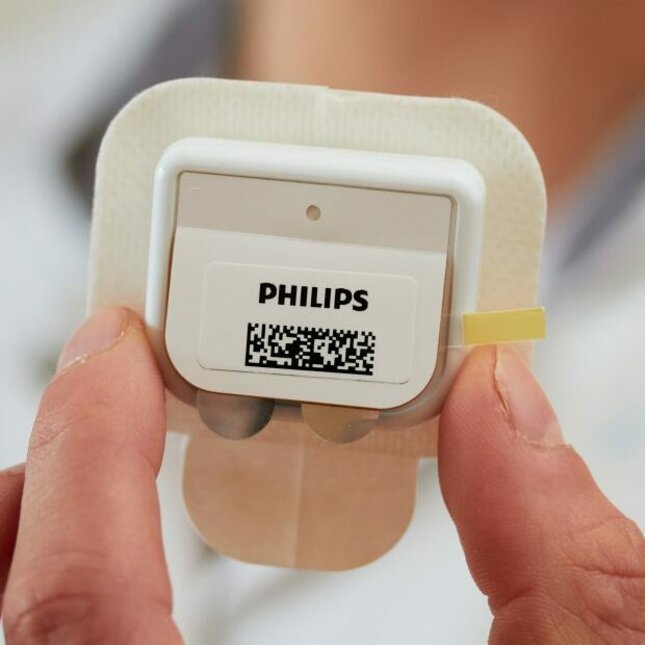Smart patch takes over time-consuming work of nurses
The research project is a collaboration of TU/e, Catharina Hospital and Philips within e/MTIC.
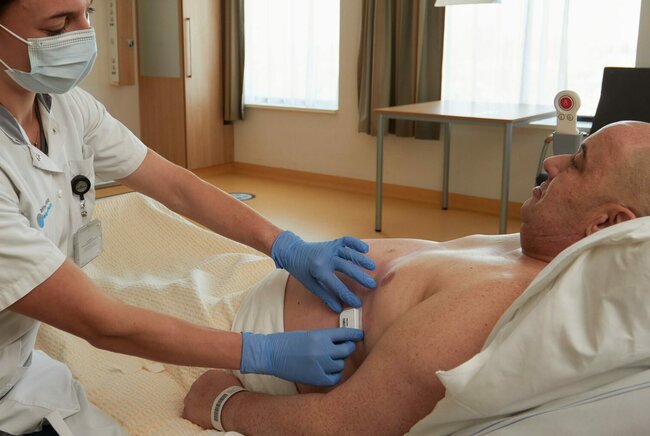
Together with Philips and the Catharina Hospital in Eindhoven, TU/e has started a study on the use of smart plasters in the nursing ward. The researchers are looking at whether this innovative tool will allow nurses to spend less time on daily, manual measurements. Patients who suddenly deteriorate during their stay in the hospital will possibly be noticed earlier by the smart plaster.
Over the next few months, all patients admitted to the surgical oncology (cancer) unit in the Catharina Hospital will have a patch taped to their chest upon entry. The smart patch measures heart rate and breathing, among other things, every five minutes. That data is automatically sent securely to a data system. This could help nurses to spot a complication earlier, while also saving them time as they no longer have to take these measurements three times a day themselves. This would free them up to see to other - often more important - care tasks.
End to manual measurements
For the first three months, the data from the patches are compared with the data that nurses collect manually from patients three times a day. After three months, if the data prove to be similar, nurses will stop taking manual measurements. The study will also look at how patients experience the smart patch.
The smart patch is already being used at the Catharina Hospital - the first hospital in the Netherlands - for patients who have undergone gastric bypass surgery. They receive the patch after the operation so that they do not have to stay in the hospital overnight.
The smart patch sends data from home to the hospital every five minutes. Thus, patients in the home are continuously monitored. If complications arise, the patient is called and - if necessary - admitted to the hospital.
'Golden collaboration in the Brainport region'
The research project is a collaboration of TU/e, Catharina Hospital and Philips within e/MTIC. "This collaboration in the Brainport region is worth its weight in gold. All parties strive to be able to apply these solutions in daily practice as soon as possible," says professor and anesthesiologist Arthur Bouwman.
"Previously, we and Philips extensively tested and approved the smart patch to be used for patients with gastric bypass surgery. This research is a logical next step to that."
In addition to the smart patch, partners are also investigating whether smart cameras can monitor patients' health.
Media contact
More on Health
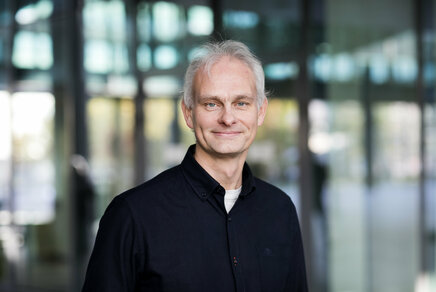
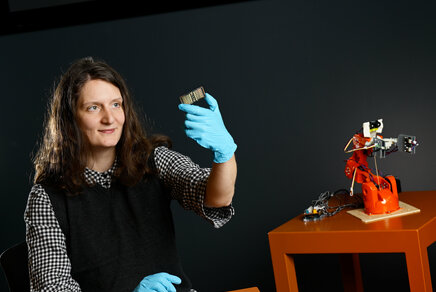
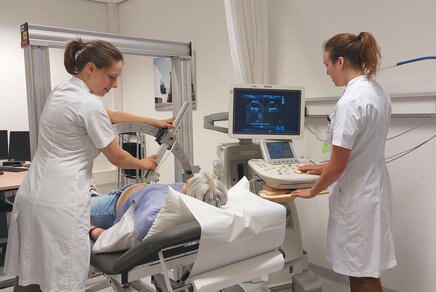
Latest news



